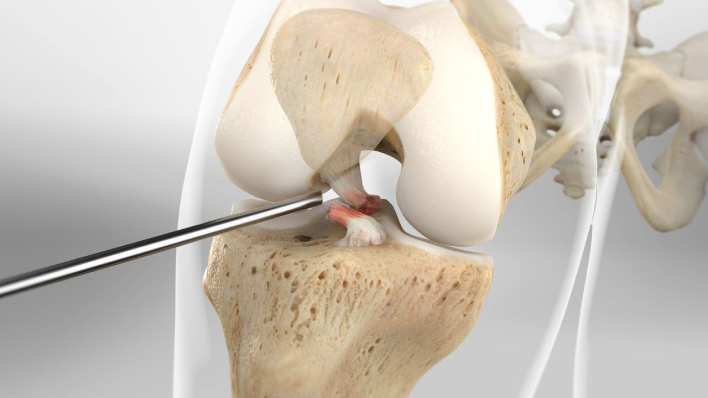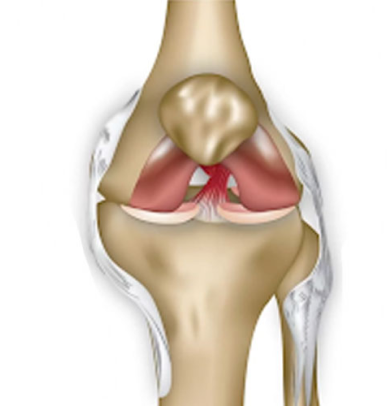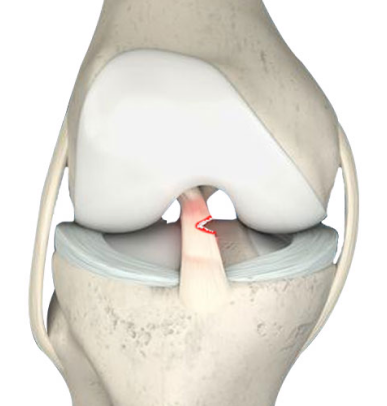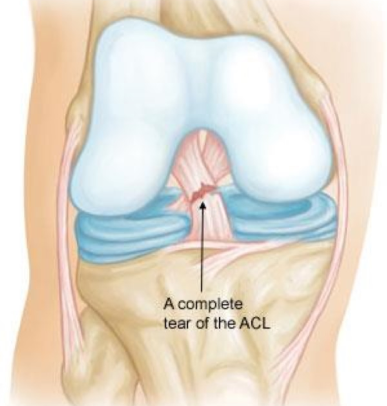PCL Reconstruction

Understanding
PCL Reconstruction Surgery Dubai
Restoring Mobility and Strength : A Path to Pain-Free Living
A posterior cruciate ligament (PCL) injury can be a significant setback, but it does not have to define your future. At Tarabichi Joint Care, we understand the importance of restoring full function to your knee so you can return to the activities you love.
Our team specializes in expert PCL reconstruction surgery in Dubai, using the most advanced techniques to achieve the best outcomes. For stabilizing a knee after a severe ligament tear, PCL reconstruction, or PCL tear repair in Dubai, is a very effective surgical procedure.
Anatomy of the PCL and Knee Joint
The knee is one of the body’s most complex and vital joints, connecting the thighbone (femur) to the shinbone (tibia). The joint is stabilized by four key ligaments, which include both the anterior cruciate ligament (ACL) and the posterior cruciate ligament (PCL).
The PCL is the stronger and larger of the two cruciate ligaments at the back of the knee. This ligament’s primary role is to ensure smooth, stable knee movement by preventing the backward shifting of the tibia relative to the femur.
Common Causes of PCL Injuries
PCL injuries typically result from a powerful, direct force to the front of a bent knee. Common causes include:
- A "dashboard injury" from a car accident where the knee strikes the dashboard.
- Falling on a bent knee during a sports-related activity.
- Hyperextending the knee.
- Twisting injuries.
Types of PCL Injuries
PCL injuries are graded based on their severity:

Grade 1
A partial tear where the ligament is stretched, but the knee joint remains stable.

Grade 2
A more significant tear, often a partial one, causes looseness in the knee joint.

Grade 3
A complete ligament tear, leading to significant instability. This often occurs with injuries to other knee ligaments.

Grade 4
A PCL tear combined with damage to other knee ligaments.
When is PCL Reconstruction Surgery Recommended?
Not all PCL tears require surgery. Minor tears (Grade I and II) can often be managed with non-surgical treatments like rest, physical therapy, and bracing. However, PCL reconstruction surgery in Dubai is highly recommended for:
- Grade III tears are prevalent in young, active individuals.
- PCL injuries combined with other ligament or cartilage damage.
- Cases where non-surgical treatment fails to alleviate chronic pain and instability.
For individuals who lead active lifestyles, PCL surgery in Dubai is often necessary to restore full knee function and allow a return to physical activity.
Candidates for PCL Reconstruction Surgery
Good candidates for PCL reconstruction are typically active individuals, particularly athletes with a Grade III or IV PCL tear or chronic instability. The ideal candidate is motivated to undergo rehabilitation and committed to following post-operative care instructions to ensure a full recovery.
Symptoms
Symptoms of a PCL tear can vary depending on the severity of the injury. The symptoms of this condition may show up right away or gradually over a period of time. Common symptoms include:
- Pain and swelling in the knee are often immediate after the injury.
- A feeling of instability or "giving out" in the knee.
- There is a reduced ability to walk or to support one's weight on the leg.
- Stiffness and a feeling of looseness in the joint.
- Pain in the front of the knee.
Benefits of PCL Reconstruction Surgery in Dubai at Tarabichi Joint Care
The benefits of PCL reconstruction are significant, particularly for those with severe tears. Surgery can help to:
- Restore knee stability and function.
- Allow for a return to sports and physical activities.
- Reduce chronic pain and instability.
- Lower the risk of future knee problems, such as osteoarthritis.
- Improve overall quality of life.
Diagnosis
Effective treatment relies on a correct and thorough diagnosis. Our specialists at Tarabichi Joint Care will conduct a thorough physical examination, including specific tests like the “posterior drawer test,” to assess the ligament’s stability.
The diagnosis will be confirmed and the extent of the damage will be evaluated using diagnostic imaging like X-rays and MRI scans.
Treatment options
Your treatment plan will be tailored to your injury’s severity and lifestyle. Options include:
- Non-surgical treatment: For less severe tears, this may include RICE (Rest, Ice, Compression, Elevation), immobilization with a brace, and a comprehensive physical therapy program.
- Surgical treatment: For severe tears, PCL tear repair in Dubai involves a minimally invasive arthroscopic procedure to reconstruct the torn ligament.
A tissue graft, either from your own body (autograft) or a donor (allograft), is used to replace the damaged ligament.

Take the next step towards a stable knee
If you’re experiencing knee instability or chronic pain from a PCL injury, it’s time to explore your treatment options.
At Tarabichi Joint Care, our team of experts specializes in PCL reconstruction surgery in Dubai. You can regain full knee function with the help of our personalized care and advanced techniques.
We are committed to guiding you through every step of your recovery, from initial consultation to a full return to your active lifestyle.
Contact Tarabichi Joint Care today and learn how we can help you find lasting relief and a restored quality of life.
Deciding to Have ACL Surgery
Deciding on surgery is a personal choice. Our experts at Tarabichi Joint Care will guide you through this process, providing all the necessary information about the procedure, potential risks, and recovery timeline.
We will help you weigh the benefits of PCL reconstruction surgery in Dubai against non-surgical alternatives, ensuring you make an informed decision that aligns with your health goals.
FAQs about PCL Reconstruction Surgery
PCL tear repair in Dubai is typically a minimally invasive arthroscopic procedure. The surgeon makes small incisions to insert a camera (arthroscope) and surgical instruments.
After removing the damaged ligament, a graft is put in its place and secured with fixation devices; this allows new tissue to grow and create a new, stable ligament.
While rare, potential complications can include knee stiffness, persistent instability, infection, numbness, blood clots, or graft failure. To minimize potential risks, our team takes every precaution and will discuss these with you in detail during your consultation.
Before your surgery, you must typically provide your medical history, recent diagnostic imaging (X-rays, MRI reports), and a list of current medications.
Recovery can take 6 to 12 months. The first phase of recovery includes a period of immobilization and physical therapy aimed at restoring the knee’s range of motion.
A more aggressive rehabilitation program will follow to rebuild strength and stability. A return to low-impact activities is typically possible within a few months, but a full return to sports might take up to a year.
Patients undergoing PCL reconstruction surgery in Dubai are under anesthesia, so they will not experience any pain. Post-operative pain is managed with medication and typically subsides within the first few days.
Our team will provide a detailed pain management plan to ensure you remain comfortable throughout your recovery.
